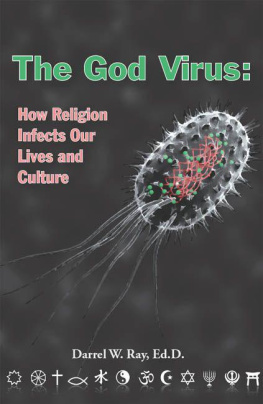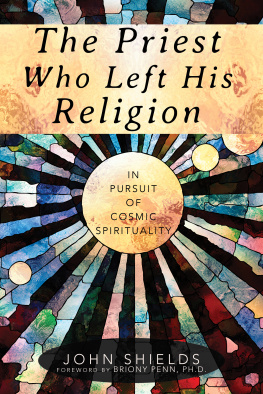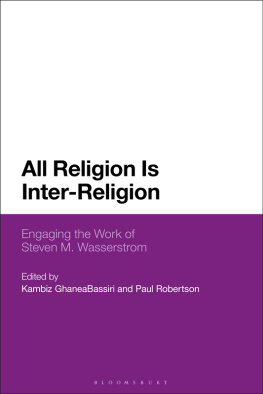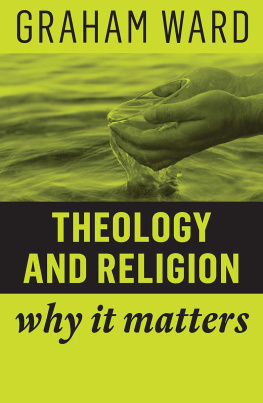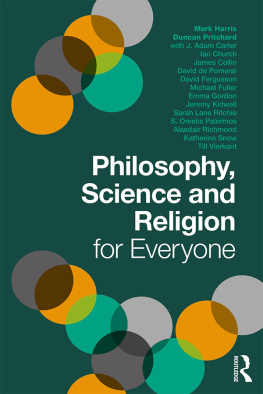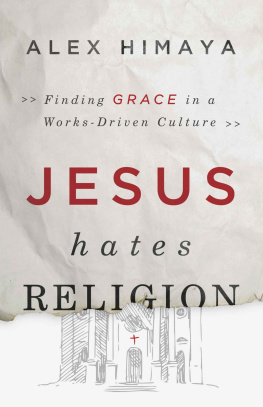The God Virus
The God Virus
How Religion Infects
Our Lives and Culture
Darrel W. Ray, Ed.D.
IPC Press
Bonner Springs, Kansas
Copyright 2009 by Darrel W. Ray. All rights reserved. No part of this publication may be reproduced, stored in a retrieval system or transmitted in any form or by any means, electronic, mechanical, photocopying, recording, or otherwise without the prior written permission of the copyright holder, except brief quotations used in a review.
Editors: Deborah Shouse, Kirsten McBride
Publishers Cataloging-in-Publication
(Provided by Quality Books, Inc.)
Ray, Darrel W.
The God virus : how religion infects our lives and culture / by Darrel W. Ray.
p. cm.
Includes bibliographical references and index.
LCCN 2008939657
ISBN-13: 978-0-9709505-1-2
ISBN-10: 0-9709505-1-9
1. Sociobiology--Religious aspects. 2. Psychology, Religious. 3. Religion and science. I. Title.
BL261.R39 2009 215.7
QBI08-600322
Published by
IPC Press
15699 Kansas Avenue
Bonner Springs, Kansas 66012
Visit www.thegodvirus.net for additional information.
Published 2009
Printed in the United States of America
Dedicated to
Dan Dana
PREFACE AND ACKNOWLEDGEMENTS
The process of writing, interviewing and researching gave me the opportunity to hear the stories of many who have escaped religion. Most of their stories reflect the following four themes:
1. Events that opened their eyes to religious manipulation in their life or family;
2. Long hidden or suppressed doubts about the teachings;
3. Their ultimate act or declaration of liberation from organized religion; and
4. The double-edged sword of living without the crutch of a supernatural friend and learning to accept full responsibility for life.
Many of them recounted both the terror and the relief they felt after leaving religion behind. Terror at realizing there was no longer an imaginary friend; relief that no one was looking over their shoulder any more. Several described the experience as similar to that of a child learning to go to sleep without a favorite teddy bear. Others described it as simply growing up or outgrowing the need for the imaginary friends of childhood.
I dont want to leave the impression that everybody who contributed and assisted with this book agrees with it completely. Each of us has our own journey. My hope is that the questions and tools this book offers will lead readers to critically examine the influence of religion in their life and culture.
It is a pleasure to acknowledge the friends and colleagues who helped me improve this book in many ways. My son, Aaron, was the initial inspiration. Our talks about religion and philosophy led me to believe there is much to share from my life and academic training. Dr. Dan Dana, my lifelong friend and colleague, provided encouragement and support at every step. Our monthly supper talks helped refine many ideas. It is a profound gift to have such a loyal friend.
Missy Andeel, Susan Henrie and Jaime Vogt provided remarkable feedback that demonstrated to me the power of the god virus metaphor. I am grateful for their efforts and willingness to share their experiences with me.
Susan Hart and Judy Roepke stayed close to the project, offering support and feedback at each stage. Our many talks and shared experiences resulted in new ideas and some changes.
Life is full of coincidences. On a plane to Europe, I met Ceil Wirth and struck up a conversation with her about this book. She subsequently asked to read the manuscript. Her questions and editing suggestions led to many instrumental changes. We do not agree on everything, but her ideas and encouragement were welcome.
Other readers provided valuable insights and shared their experiences. Chris Coope, Julie Price, Dave Carleski, Michele Lubbers, Janet Boehm and my wonderful colleague, Laura Northcutt, each unselfishly gave time and energy to this project.
I am grateful also to Kenny Nipp, Earl Doherty and Hemant Mehta, who saw the value of the manuscript and encouraged me to see it through to completion.
Thanks to Shayne Schuldt, who did a wonderful job in the design and graphics of the book, including the cover.
I am also indebted to my two editors, Kirsten McBride and Deborah Shouse, for their attention to detail and critical eye.
Although I cannot use their names here, I am grateful to the many religious people I interviewed as part of my research for the book. While some were open to discussing and critiquing my ideas, most did not wish to be acknowledged.
CONTENTS
INTRODUCTION
The chains men bear they forged themselves. Strike off their chains and they will weep for their lost security.
-John Passmore, Australian philosopher
Every day religion affects us in ways we may not realize. It makes your Uncle Ned spend hours praying for you; it gives your Baptist neighbor a reason to reject her own child who married a Catholic; it teaches your Pentecostal sister to spank her children to keep them from going to hell; it requires a Catholic priest to deny his sex drive; it causes people to give enormous amounts of money to religious organizations; and causes you to avoid talking to your cousin Jennie for fear she may try to convert you to Jehovahs Witnesses. Religion has both obvious and subtle influences on you and on society.
This book explores the impact of religion on you and your world. It draws open the curtain of mystery and offers ways to understand and make informed decisions about religion.
Have you ever wondered what makes religion so powerful? What makes people profess deep faith even as they act in ways that betray that faith? What makes people blind to the irrationalities of their own religion yet see clearly the problems of other religions? How does it weave its way into our political system? If these and similar questions interest you, this book will help you understand its power in you, your family and your culture.
For thousands of years, religion penetrated societies, largely unexplained and unchallenged. It simply existed. Those who attempted to question or expose religion were often persecuted, books burned, excommunicated, or even executed. From Galileo to Darwin, Salman Rushdie to Theo van Gogh, it could be hazardous to critique or explain that which the church, priest or imam said was unexplainable.
Before the germ, viral and parasite theory of disease, physicians had no tools to understand disease and its propagation. Priests told people disease was a result of sin, Satan and evil spirits. With the discovery of microbes, scientists gained new tools to understand disease. They could study infection strategies, immunity, epidemiology, and much more. Suddenly the terrible diseases of the past were understandable. The plagues of Europe, yellow fever, small pox, pneumonia, tuberculosis, syphilis, etc., were now removed from the divine and placed squarely in the natural world.
Galileo was put under house arrest for the last year of his life; Darwins work has been suppressed by many religions since it was first published in 1859; Salman Rushdie has had a death threat over him since writing his novel Satanic Verses (Macmillan, 2000) and Theo van Gogh was murdered for producing a short film critical of Islam.
that we gained a ready-made way to examine religion as closely as we look at the epidemiology of the flu virus. This book will show how religions of all kinds fit in the natural world, how they function in our minds and culture and how similar they are to the germs, parasites and viruses that inhabit our bodies.
This book owes a great deal to Richard Dawkins and Daniel Dennett, but it seeks to go a step further by showing how their revolutionary ideas work in everyday life. The paradigm that they pioneered can explain the fundamentalism of your Uncle Ned, the sexual behavior of a fallen mega-church minister, the child-rearing practices of your Pentecostal neighbor, why 19 men flew planes into the World Trade Center or why women blow themselves up in the crowded markets of Baghdad.

